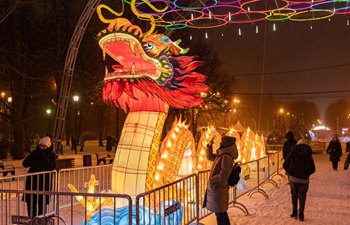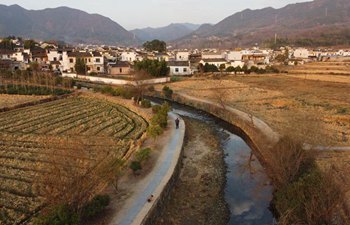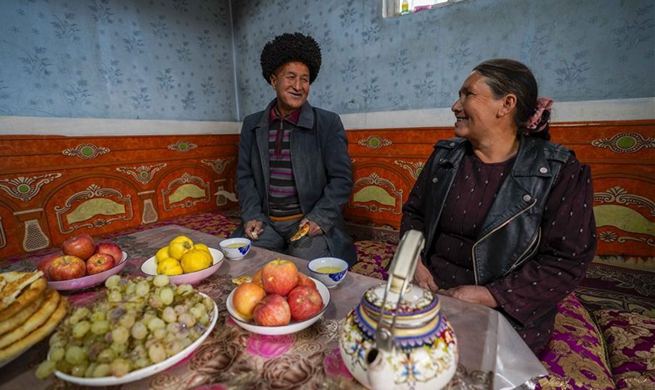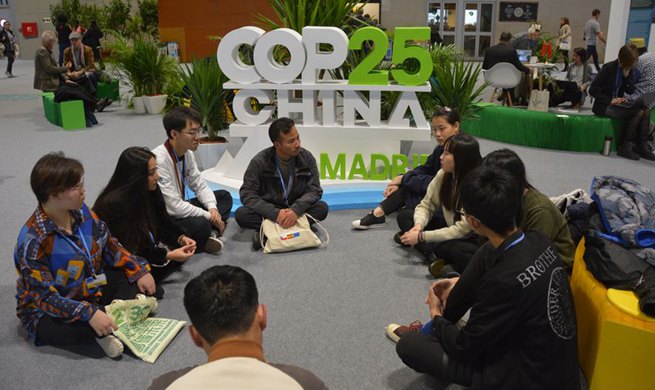TOKYO, Dec. 6 (Xinhua) -- Japan removing its tightened export controls on South Korea may not be tabled for discussion in a planned meeting later this month between the two countries, Japan's Minister of Economy, Trade and Industry Hiroshi Kajiyama said on Friday.
When asked in a press conference on the matter if Japan's tightened export controls would be revised in the meeting between senior trade officials from both sides, slated for Dec. 16 in Tokyo, Kajiyama replied: "I don't think so."
Rather, he said, the meeting would serve as an opportunity to exchange views on the issue.
"We plan to exchange views on the export controls of Japan and South Korea and their implementation," said Kajiyama.
He said the meeting might not be a quick-fix to a bilateral dispute that has been rumbling on and has involved Tokyo imposing stricter export regulations on some high-tech materials bound to South Korea as well as removing its neighbor from its preferential list of trading partners, with South Korea responding with its own tit-for-tat moves.
Kajiyama also indicated that the decision on the future course of its tightened export controls on South Korea would be made by the Japanese side.
"I'm sure South Korea will make its arguments and requests, but we will make a decision regarding export controls," Kajiyama said.
The meeting between both sides will mark the first such director general-level meeting in more than three years and the first since Japan slapped tighter controls on tech-related exports to South Korea in July.
Kajiyama had said that preparations for the talks were held in Vienna, Austria, on Wednesday, with talks between working-level officials having already taken place.
The planned talks come as Tokyo and Seoul have been at odds since October last year when South Korea's top court ordered a Japanese firm to pay compensation for the forced labor of South Koreans during Japan's 1910-1945 colonial rule of the Korean Peninsula.
Japan believes the matter was settled by a 1965 pact, which saw Tokyo pay Seoul some 500 million U.S. dollars under the banner of "economic cooperation."
The dispute, however, continued and spread to trade and security issues, with both sides tightening export restrictions and removing each other from their preferential lists of trade partners.
"I hope that through dialogue, we can step up cooperation on non-proliferation of weapons of mass destruction," Kajiyama told a press briefing Thursday, touching on this matter and in relation to the upcoming talks.
The spat had also spilled over into security areas, with Seoul deciding to terminate the General Security of Military Information Agreement (GSOMIA), before deciding to extend the pact with Japan just hours before the deal was due to expire.
GSOMIA is a bilateral military intelligence-sharing accord signed between both countries in November 2016.
The pact has enabled the two neighbors to share military information and has helped both sides counter potential regional threats.













